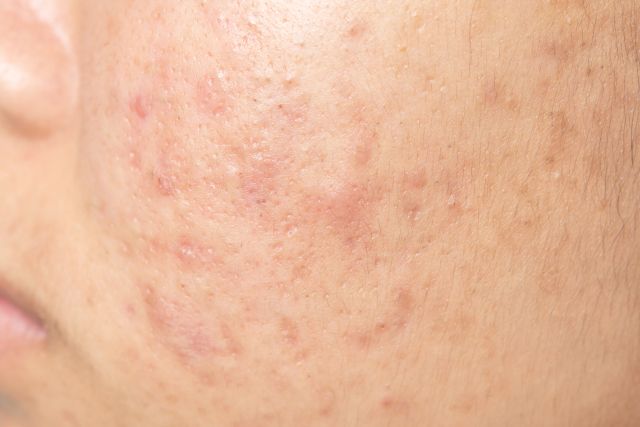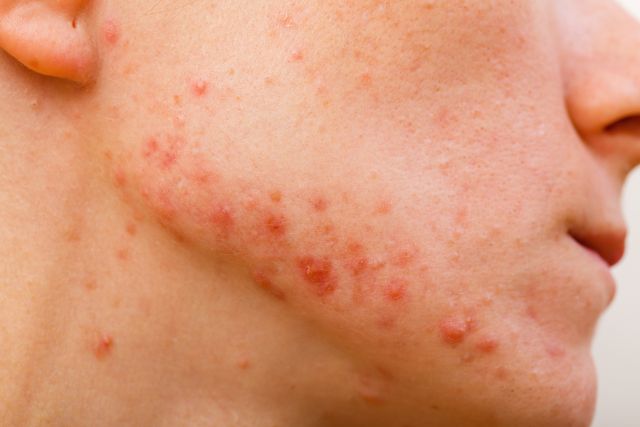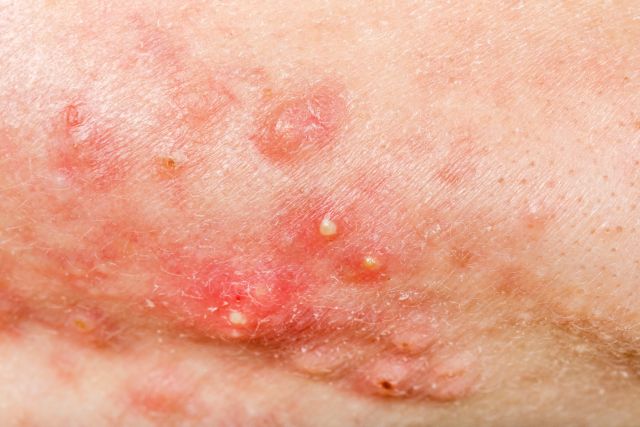
10 Facts You Need to Know About Acne
Next time a breakout occurs, don’t beat yourself up over it because there are a few things you need to know about acne.
1. Acne doesn’t discriminate
So, stop being hard on yourself! Acne is an inflammatory disease that almost everyone experiences at some point in their life, especially if you’re going through or have just gone through puberty.
2. You are not alone
When you’re scrolling through Instagram, it might feel like you’re the only one out there with spot or acne-prone skin, but don’t let those filters fool you. Acne is an incredibly common problem and more than 85% of teenagers will experience acne in their lives. So next time you look in the mirror, know that you are not alone.
3. Bacteria can cause acne. FACT
Bacteria like two things to cause acne on your face: oil and dead skin cells. We know: so gross. And unfortunately, during your teenage years, your hormones can help ramp up your oil production.
Your hair follicles which have small glands (called sebaceous glands) that produce a natural oil (called sebum). If these glands are sensitive, then your hormones (known as androgens) can make them produce excess sebum (aka extra oil).
Then there’s the issue of your skin cells dying. When your skin cells around the follicle die (yep, they don’t live forever) and mix with the excess oil, this mixture clumps together and gets trapped inside your pores, starting to clog.
Enter bacteria. Once the oil and dead skin cells accumulate in your pores, this creates an environment for particular bacteria to multiply and infect the follicle, causing papules, pustules, nodules or cysts… in other words, acne.
4. Not all spots are equal
When a spot or breakout occurs, it’s important to know what type of acne you’re dealing with. Here’s a breakdown of the different types of acne and the common spots that occur.
• Mild acne
Mild acne is when there is very little inflammation of the skin, but whiteheads (closed clogged pores) and/or blackheads (open clogged pores that are easily visible) are present.

• Moderate acne
Your acne will be defined as moderate if you have whiteheads, blackheads and inflamed red spots (known as papules) or raised red spots (known as pustules).

• Severe acne
Severe acne is a mix of any of the above, but you may also have cysts or nodules. These spots can be large, painful and can cause severe redness to the skin’s surface.

5. Acne is treatable
The good news is that acne is treatable. For mild acne, topical treatments with active ingredients can be very effective. Our Acnecide products contain an effective acne-fighting ingredient called Benzoyl Peroxide, which kills up to 95% of spot-causing bacteria.
When using a medicinal treatment gel such as Acnecide’s Face Gel or Face Wash, the Benzoyl Peroxide will penetrate into the pores and kill the bacteria hiding underneath. It also helps to slough away the dead skin cells on top, helping to prevent clogged pores.
6. But not all acne treatments are equal
If your acne is moderate or severe and you’re struggling with how to clear your skin, it’s always best to speak to your GP or a dermatologist to explore other treatment options.
7. Some acne treatments can dry out the skin before it gets better
When putting Benzoyl Peroxide to work, there is a chance that your skin will need time to get used to it. You may experience some irritation (dryness and redness).
Another important step for combatting any dryness is to ensure that you moisturise after applying the treatment – both morning and night. Always choose a moisturiser that won’t clog your pores, such as Purifide's Daily Moisturiser with SPF.
8. Popping spots may make it worse
There’s nothing more satisfying than popping a fresh spot. Don’t believe us? There’s a reason why pimple-popping videos go viral on the internet. But before you go ahead and start to get handsy with your face—stop!
Popping spots can do more harm than good. When you pop a spot, you can easily spread bacteria to other parts of the face so let your acne-fighting skincare treatments help instead. But if your pimples are really out of hand, it’s always best to see a dermatologist.
9. SPF is important
We all know what happens when you spend too much time in the sun without sunscreen on, but we’ve got one more reason for you to be sun-smart. When using a product that contains Benzoyl Peroxide, your skin will become more sensitive and you’ll be more susceptible to getting sunburnt. Being sunburnt sucks for many reasons, but if you have acne, it can cause scarring, and even drier, flakier skin. In the morning, after cleansing and treating, moisturise with Purifide’s Daily Moisturiser.
10. Acne doesn’t go away overnight
Using a treatment product with BPO is effective for getting rid of your unwanted spots, but you need to be patient and consistent in your application. It may take a few weeks for you to see results. This can be frustrating, but commit to really taking control of your acne.
As you can see, you don’t get acne because of “what you’re doing”. Acne is an all-too-common disease that nearly everyone will experience in their life. So next time a breakout occurs, don’t beat yourself up!
Acnecide Gel and Acnecide Wash are indicated for the treatment of acne. Both contain 5% benzoyl peroxide. Always read the label.

